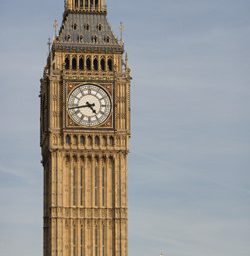Institutional Design and Governance
A piece at Foreign Policy provides a chance to give some thought to institutions.
The United States can claim a number of things about its government including the age of its constitution (the longest continuously operating such document in the world) and the fact that it can claim, despite many flaws over time, to have the oldest democracy.* We often like to think of ourselves as a model to the rest of the world in terms of our constitution and its institutional parameters, but as Christian Caryl rightly notes in a piece at Foreign Policy (Looking for an alternative to dysfunction in Washington? Maybe it’s time to turn to Berlin), despite the high esteem in which we hold our own system, it is often overlooked that ours is not typically the model of new democracies (and hasn’t been for some time). Further, we in the US simply don’t realize that there are multiple ways to configure the machinery of democratic government.
If we look globally, the only countries that modeled their constitutions directly on that of the US would be those of Latin America who gained their independence from their European masters not all that long after the US did. As such, almost all of the cases of presidentialism (i.e., a separately elected executive, and hence separation of powers) can be found in Latin America. Most Latin American countries also have bicameral legislatures, even the non-federal cases. We also see presidential systems in US-influenced South Korea and the Philippines and in mostly non-democratic cases in Africa. ** Strikingly the post-war constitutions of Germany and Japan adopt neither separation of powers nor the US electoral system (despite the amount of US influence in those cases, especially Japan).
Indeed, it is Germany’s constitution that is the subject of Caryl’s piece:
If anything, the United States now offers an even worse advertisement for the virtues of democracy than it did in 1991. Congress is paralyzed by partisan bickering, and Barack Obama’s administration barely seems up to the task of launching a website. Germany, by contrast, still offers a fine example of the virtues of steady government; it is Europe’s rock.
First, the author has a point that is worth considering: the US system has not exactly been the model of good and effective governance for some time now, which is unfortunate given the US’s self-image as Beacon of Democracy and holder of the Best Constitution Ever.TM (All flippancy aside, it is very much the case that our self-image on this topic does not comport well with reality).
Second, while the piece overstates the degree to which the German constitution was the model for post-Soviet democracies, it does rightly point out that the German system has a number of advantages and opens up the conversation for thinking about comparative constitutions and the notion of political engineering in general—these observations alone makes the piece worth reading.
Of course, one of the basic advantages of the German system is that is it is fundamentally parliamentary, i.e., the executive is elected by the legislature on the basis of the majority coalition in the first chamber of the bicameral German parliament (Germany is federal, like the US, and the second chamber represents the länder, i.e., the states). This means that utterly dysfunctional government is highly unlikely. This, of course, is not unique to Germany. (The article rather oddly states that Germany has “strong separation of powers” but I am not sure what the author meant by that statement).
Now I know that the reaction of most Americans is that we like separation of powers, and that’s all well and good. However, I would note a couple of things. First, most of us like it not because we have really thought about it, but rather because we are used to it (and we revere the Framers and the Constitution, so whatever choice they made must be good). Second, we often like the notion that governing is hard (although it is worth considering the difference between making major policy changes difficult and making them nearly impossible, let alone making things like passing a budget, a fundamental responsibility of government, almost impossible).*** The virtues (and vices) or parliamentary government deserve their own post, but it is the foundation of the German system and any discussion of that system requires noting this fact.
However, while I have an increasing preference for parliamentary systems (were I constitutional designer, I would likely recommend it), the area I find most interesting in terms of institutional discussion vis-à-vis German is their electoral system. The article mentions it thusly:
they created a unique electoral system that gave each adult citizen two votes: one (the more important) for a party, and one for a candidate. This shrewd bit of political machinery biased the system toward coalition: A person might cast one vote for the Social Democrats, ensuring that party’s victory in the general election, while simultaneously giving a vote to an individual Christian Democrat. Moreover, a new threshold rule determined that a party could only get into parliament if it won at least 5 percent of the votes cast, a measure designed to prevent political fragmentation and to promote workable majorities.
This is the system called Mix Member Proportional and is a type of proportional representation system because it allocates seats in the legislature proportionally to the various divisions of the electorate. If, for example, Libertarians get 9% of the vote and Greens get 8%, then they would get the commensurate percentage of seats in the legislature. In simple terms, the system works like this: voters vote for a party and for a local representative. The party vote determines, via national percentage, what the breakdown of parliament will be. If, hypothetically, Pary A won 40% of the vote in the national vote they would be guaranteed 40 seats in a 100 seat parliament. Let’s say they won 35 of the districts. That would account for 35 of their seats and the remaining 5 would come from the list of candidate associated with the party vote. If a party won 10% of the party vote but no district seats, they would get 10 seats out of 100 off of their list. (A video based on the New Zealand system can be found here). The general upshot is that larger parties tend to win the district seats and do well in the party vote while smaller parties are able to get representation via the party vote.
The author over-emphasizes the split vote/coalition bias in the system, btw. The need for coalition building isn’t because of the two votes as much as it is the fact that the system is proportional in seat allocation, which leads to more parties (and the inability of one party, therefore, to control the government by itself).
The really important aspects of MMP are as follows:
1) The percentage of seats in the parliament is proportional (based on the percentages each party receives for the party lists votes). This means a better representative mix in the parliament vis-à-vis the citizens.
2) The system promotes some large parties but also allows for smaller parties to represent various interests in the society. This means that one party is unlikely to control the government because none are large enough. This means having to seek out a coalition partner (or partners).
This is different, by the way, from other proportional systems, like the one in Israel, that tends not to produce any truly large parties, and therefore requires complex multi-party coalition to form a cabinet.
When it comes to electoral systems, the US suffers from the fact that we went first down the path of democracy, meaning that we did not have the advantage of the examples of other ways to conduct elections. At the time it seemed obvious that the only way to do things was to divide up the country into districts and then give one seat per district to the person with the most votes. The notion of proportional representation did not exist at the time (and there were no examples, either good or bad, to emulate/avoid). It is noteworthy that new democracies do not adopt single-seat districts with plurality winners, like we have in the US (and UK, Canada, and India, to name three more), but they adopt any number of other systems instead.
This issue of electoral systems is one that I would love to see become more part of the debate in the US, because it directly is linked up to the issue of representativeness and responsiveness vis-a-vvis Congress. Congress is neither all that representative and is not at all responsive (with the incumbency re-election rate being what it is, why should it be?) and these issues are directly linked to the election system. Further, it is worth noting that our current House has what is called a spurious majority: more voters actually voted Democratic, but Republicans have a majority of seats. While pointing this out may sound like a partisan snipe, the reality this should be a concerning outcome to anyone who values representative democracy. Further, there is little doubt that the Democrats and Republicans, catch-all as they may be, do not actually fully represent the American public completely.
Ultimately all of this is a long way of saying the following. First, we need to understand as a country which of our political maladies are the result of institutional design and how much are caused by politicians. Yes, politicians bear a lot of responsibility for poor governance. However, a lot of the problems that we see are the direct result of governing itself being made too hard by the constitution. Recent problems like the budget impasse and the debt ceiling debate are clear examples. Beyond that, the inability to do important things like welfare reform, tax code reform, and immigration reform are all substantially because of design issue (i.e., it is too easy to block legislation). This is true, by the way, regardless of what one’s policy preferences are. This situation has been made more difficult in recent years by the sorting of the parties into two purer iterations of themselves. Our near-religious reverence for the Constitution and the Framers make it impossible to even discuss the degree to which institutions might be part of the problem.
Second, an article like this can help bring attention to the fact that there are multiple ways of designing democratic institutions—a fact that our penchant for seeing ourselves as exceptional often blinds us to.
Bottom line: while I personally am more than ready to make recommendations about institutional reform, I know that we are not really ready for such talk. However, I do think it would be quite useful if we would at least a) being to understand that there are different ways to govern in the democratic context, b) our constitutional system is not perfect, and c) some of our problems may actually be being caused by that system.
(I will end with a shameless plug: the above conversation is very much the topic of my new co-authored book slate for publication this fall: A Different Democracy: American Government in a 31-Country Perspective.)
*And before anyone starts in with “we have a republic, not a democracy” please note that the word democracy here means a system of governance whereby the power to govern is conveyed to politicians by citizens via elections for set amounts of time (i.e., representative democracy). This is, by the way, what Madison meant by the “republic” in the Federalist Papers as well as what is meant in the constitution in Article IV, section when the states are guaranteed “a Republican Form of Government” (i.e., no aristocracy would be allowed). Back to Madison, when Madison said that the US Constitution did not create a democracy, he meant what we would call a “direct democracy” in modern parlance. See Federalist 10, 14, and 39.
**There are also a number of countries in Africa that have presidents, but the vast majority of these are not functionally democratic (even if they have elections, e.g., Zimbabwe).
***I won’t really get into it now, but I think that, whether it is fully realized or not, that much of the dissatisfaction with government (although not all of it) is derived from the inability of the government to govern.







I’ll look forward to reading the book. As always, Steven Taylor is the best part of Outside the Beltway.
I’m working on a post for recommendations I would put forth for a Western States of America (MT to NM to WA to CA and all states between), wherein I actually recommend a parliamentary system. I doubt it would be adopted, though, and so I’d have a fallback. That’s for a proposed new country. For the existing one, there is just no way such an overhaul is likely to be considered.
I think the focus instead should be on changes that can be implemented within the current framework. Eliminating the Filibuster, the NPV if it survives a challenge, gerrymandering, and so on. I’d also like to increase the size of the house, though I’m not sure how important that actually is.
@trumwill: Clearly radical reform is not going to happen. At this point all I really wold like to see is at least a conversation about such things. As it stands, most Americans, even quite well educated ones, have no clue about this stuff.
In the realm of the possible, I agree that ending gerrymandering, NPV, increasing the size of the House. and ending the filibuster are at least possible, and would all be positive steps in the right direction.
@DA: Kind of you to say.
If the ratio of members to population in the House were the same as the Bundestag, the House of Representatives would have 2,300 members.
Another difference in our system: Commons, the National Assembly, and the Bundestag all have a far smaller proportion of lawyers as members and a younger average age.
At this point our Congress is more like the House of Lords: a lot of rich old guys, many with hereditary titles.
@Dave Schuler: 2300 sounds good to me! I have also really come around on term limits (albeit generous ones).
I added your book to my wish list, which means I will probably either buy it myself or one of my kids will buy it for me.
I am a conservative. I am also a traditionalist. Change should be gradual and prudent. The Constitution has served us for 200 years. How long have the Germans had their constitution? Ever watch Das Heute Show? Thirty-plus minutes of serious making fun of government. I am not sure that the Germans even take their government seriously. Maybe we don’t take ours seriously either, not that I want to start a contest on which country takes their government less seriously.
I would say the Europeans have the government they do, because they were a different kind of people than the early Americans. Americans were not a directed people. We were not bred for submission to authority. A few generations in the wilderness shakes a lot of that out of you. We were free men and meant to stay that way. Europeans were serfs and were ridden by people with titles and bred with aristocracy. They may not even know the notion of freedom as we understand it.
I have lots of questions, but that’s why you wrote the book. I’ll read it and see how many are answered. It seems that you must have a prodigious amount of energy.
@Dave Schuler: The German first chamber is a bit over-sized for its population, if memory serves.
And in re: House of Lords v. Senate comparisons: the problem there is that Lords has almost no power, while the Senate has quite a bit.
@Another Mike:
My co-authors and I thank you for your interest.
Not as much as I would like 😉
Parliamentary systems *can be* (extremely) dysfunctional. Look at Italy since World War II. To me, the real problem is the nationalization of every election in the United States, not gridlock between the parties.
@DA: Italy is the typical example of parliamentary dysfunction. But the issue is the question of what the norm is for a given system.
Finally read the article. Lots of interesting information, though a tone that doesn’t actually inspire the conversation looked for.
I think that the “separation of powers” might be a reference to the fact that the state governments themselves have some representation at the federal level.
There is a lot to like about the German system. The degree of federalism actually seems a bit odd govern the smaller population and size of the country. Though I am sure they have their reasons. But it has elements that might serve us well and that I intend to bring up on my WSA post (along with Australia).
@trumwill: German federalism grows out of the fact that Germany itself grew out of a confederation of smaller states in the late 1800s.
It’s worth pointing out that there’s nothing in the Constitution that requires single-member districts in Congress, and for lengthy stretches states (even those entitled to multiple seats) often had at-large seats or a mix of at-large and single-member seats. Just as there’s nothing in the Constitution that sets the size of the House.
That said, I don’t think a body the size of the National People’s Congress would be effective or worthwhile; something on the order of the Wyoming rule (the quota being set at the population of the least populous state) would probably be as far as I’d want to go, and that still leaves you with a House of ~800ish.
Both changes could be accomplished by changes in statutory law, although I’d suggest that since neither are in the interest of current members of Congress (PR would shift power further away from individual members to political parties, and a larger house would be deeply unpopular on the “why do we need 400 more useless politicians in Washington drawing $200k each plus expenses?” dimension – you couldn’t even get the public to support paying the Texas lege more than minimum wage) the odds of their adoption are exceptionally small.
@Chris Lawrence: I could absolutely live with the Wyoming rule.
But yes: I can’t disagree with your assessment of the politics of the situation.
Still, all I can I can ask for at this stage is a more informed debate on these issues. (And that may be asking for too much).
The Wyoming Rule would only give about 540 seats and would create wild swings with the population of a small state. Our 2010 census would have eliminated almost 30 seats from 2000.
Better to come up with something more predictable. 800 seats would be an improvement. Or peg it to population growth (though not necessarily a linear relationship.
@Steven L. Taylor: Belgium has been failing to form an effective government for years. This follows from Flem/Walloon tensions; an unusual circumstance that would, I think, be an exception to the general rule. Krugman had a column last week pointing out that Belgium has done well economically compared to her neighbors, France and the Netherlands; perhaps precisely because Belgium lacked a government that could impose austerity.
Interesting notions. One theory I’d like to float: Because Congress is unable or unwilling to act legislatively, it is unable to effectively check a president who oversteps his bounds.
Thanks for the interesting article, Professor Taylor.
As far as congressional apportionment, I had a friend suggest a simple rule that’s been growing on me. Basically, apportionment would work as it currently does, but a state which gained population over the last census could not lose representation in the new apportionment. It would blunt some of (not all of) the effects of a statutory cap on Congress’s size combined with population growth.
I don’t have the file with me now, but I went back to figures from the beginning of the nation and ran this rule out to the present, reapportioning every 10 years and not letting any state which gained population lose representation. It implied a current congress of 3,770 members. Not nearly as big as the one member per 30,000 citizens the constitution allows, but more than 8 times bigger than we’ve got.
“Good” seems subjective in the extreme. Effective? The most efficient and effective government in history is a title held by the Nazis. Perhaps better definitions are in order?
@Eric Florack:
People keep saying that about the Nazis, or some drivel about the trains running on time. I have yet to see any evidence for this beyond common assertion. It is just another excuse to mention Nazis in entirely unrelated contexts.
As a somewhat casual observer of our governmental institutions, especially the Congress, it seems to me that the main driver of the do-nothingness is indeed political, and is representing two entirely different views of where to guide the nation towards: call it traditionalism as opposed to authoritarianism. The traditionalist wishes us to remain strongly wedded to the Constitution and its natural rights, laws and duties, and with civil laws that do not do violence to the natural law, whereas the authoritarians appear to be trying to impose a quasi-socialist form of government where most of the GDP is devoted to entitlements, and most of their proposed laws tend to delve deeper into private arenas “to ensure equality,” even of outcomes.
One can easily see that traditionalists have little power to change existing laws but sufficient power to block new legislation of the authoritarian kind. Hence the do-nothingness. This has already been observed here before. It would also appear that party disciplines leading to block voting ensures that significant new legislation will be a rare occurrence, unless manipulated by parliamentary trickery. Then, too, the creation of safe seats by way of redistricting appears to block any major political changes to the majority/minority relationship in many states. So we have long-term stasis to look forward to, if the voting public continues its current trend.
Given the current national and state legislature lineups, it is apparent that there will be absolutely no significant reforms to the Congress for the foreseeable future, so while alternative structures for our legislature are very interesting to think about, I believe it is simply an intellectual exercise, not destined to be realized. The way out seems to be a significant repolarization of the electorate towards one party or the other, and that, too, appears to be wishful thinking. May God help the USA!
@trumwill: I had it in the back of my head that Wyoming was quite a bit smaller (for some reason I thought it was in the 400k range; probably based on population figures from the 80s). That said, for a variety of reasons the House probably shouldn’t exceed around 800. As it is most of the actual work in Congress simply can’t be done on the floor anyway, so all additional members buy you once you’re in the hundreds is a bit more proportionality (in a PR system) and fewer voters per representative.
@Grewgills: Well, Stalinist Russia, if you like. either serves about as well. Certainly, one can be ‘efficient’ when one is unopposed… which tends to happen when all your opponants wake up dead.
That said, in my decades of reading the constitution, it seems to me clear that an efficient government was precisely what the founders were concerned about protecting us from.
@Eric Florack:
Perhaps you can you define what you mean by “efficient” rather than starting with straw-man examples of so called “efficient” governments?
Does anyone really believe that the U.S. would have ended up extending to the Pacific Ocean is it had had a parlimentary system where representation would not have been based on local but based on party. I doubt if the U.S. would have made it much further that the Appalachian Mountains under a system that would have been designed to protect the status quo and the elite.
@superdestroyer: This comment is a massive non sequitur.
@Matt Bernius: let’s see… what was the phrase used?
Getting things done?
@superdestroyer: Not sure that would have made much difference, given the state of representation in the territories.
Many would disagree with your statement that dissatisfaction with Congress is because they don’t govern. While certainly some folks want Congress to pass more laws, a sizeable number of folks prefer divided government just to slow the flood of new laws.
One can agree or disagree with the principle, but it certainly exists among a significant portion of the US citizenry.
I personally would like to see some non-constitutional solutions given a try. For one, keep Congress in continuous session (Jan-May; Aug-Nov) and impose sanctions against members who are absent. A second idea would be to reimpose something like the benevolent despotism that Sam Rayburn used to exercise over the House, although I’m not sure how this could be imposed. When even the most junior member can get media attention, efforts to maintain institutional effectiveness always run a poor second. There ought to be a penalty for Congressmen (Senators too, for that matter) who are always on camera.
@Steven L. Taylor:
You want a different form of government today because of conditions that exist today. However, if you had started out with your preferred form of government, the current day situation would be very different. The same applies to Germany. It has its current form of government because of its past history.
I take it you are not a fan of alternative history science fiction. Why not ask yourself if there would have been something like the Louisiana Purchase under a Parlimentarian system or would the MP’s been happier with the status quo?
@superdestroyer: Your assertions make no sense because you clearly don’t understand what you are talking about. You are making assumptions and assertions that are not logical or based in an understanding of basic politics.
There is no reason, for example, that a parliamentary form of government would have led to the rejection of the Louisiana Purchase. That makes not sense whatsoever.
@Boyd: correct.
@Boyd:
While you raise a valid point, I’m not sure if it goes far enough. Without quibbling about “sizeable,” my experiences with folks on that side of the aisle lead me to believe that rather than *slowing the flood*, what they are looking for is turning back the tides.
In other words, the hope is to actually roll back what they consider to be destructive legislation (i.e. repeal Obamacare, etc).
@Matt: Well sure, there are plenty of folks who’d love to repeal Obamacare. I’m sure there are plenty of liberal folks who’d love to repeal laws they consider onerous, too. But that requires that “your side” has control of both houses of Congrefs and the Presidency, but even that doesn’t make repeal a sure thing.
But for many decades, there been a significant contingent in the more “little-l libertarian” corners of the country that have longed for a do-nothing Congress.
@Boyd: the problem is that a true “do nothing congress” means no budget, defaulted loans, no national security, etc.
I can fully appreciate that there is a legitimate debate as to how much the government should do, but we really need to have a functional legislature.
We need tax reform, but we are not going to get it. We need welfare reform. But we are not going to get it. We need immigration reform, well, you get the idea.
We need a legislature that will actually check the executive for that matter.
@Steven L. Taylor: I suppose I long for the good ol’ days when “do-nothing Congress” meant do nothing but govern.
@Boyd:
Understood, but I question the notion of “significant contingent” in that they’ve largely gotten that for the last few years and Congress’s approval rating has continued to drop.
And I’m juxtaposing them against the folks I hear on talk radio (which I’m not pretending are “significant”) who’s hope is that not so much doing nothing, but going further into repeal.
@Steven L. Taylor:
Right, because — for the influential minority — it’s better to take no action than risk compromising on reform. And this is particular area where survey after survey shows that one wing of one party abhors compromise. Unfortunately the current system prevents any action from taking place.
That said, it’s unlikely the other party is particularly interested in welfare reform — and tax reform is something nobody seems to seriously want to address. Immigration, on the other hand…
This as well!
@Boyd:
But, of course, the issue of what is it to “govern” is the basic debate, yes?
And the rhetoric matters: when people speak as if they want little to no government they actually don’t mean it, even as they convince themselves that they do.
@Dave Schuler: The smaller proportion of lawyers comment interests me…. and it seems to me that most countries have a lower per captia percentage of lawyers than do the States. Do you suppose that the driver on that difference?
@Matt Bernius: Oh, agreed.. but any progress to the end of ls helpful in the cause of freedom.
@Steven L. Taylor: I’m curious…. on what do you base that assertion?
For those who say they don’t want the government to do anything, you do realize that undoing some of the stuff the government does requires legislation too, right?
@Eric Florack: The simple fact that people want roads, military, border patrol, schools, food safety, and so forth. The vast majority of people don’t want to live in a governmentless society (even ones who rhetorically say they do).
We can legitimately argue over the scope of government, but it is silly argue that we do. It need or want it.
This isn’t hard: if Congress literarily did nothing, then at some point the economy would collapse.
If the Congress literally did nothing then it would mean totally open borders.
Etc.
@Steven L. Taylor: I would argue that the founders, who recognized that path to tyrrany, specifically designed our government to be slow or non-moving during periods of disagreement.
@Steven L. Taylor: The reverse is the more correct. Every time Congress does something, and government grows, freedom shrinks and with it the economy.Our founders considered government a nessasary evil. Nessasary, but an evil to be held in check none the less.